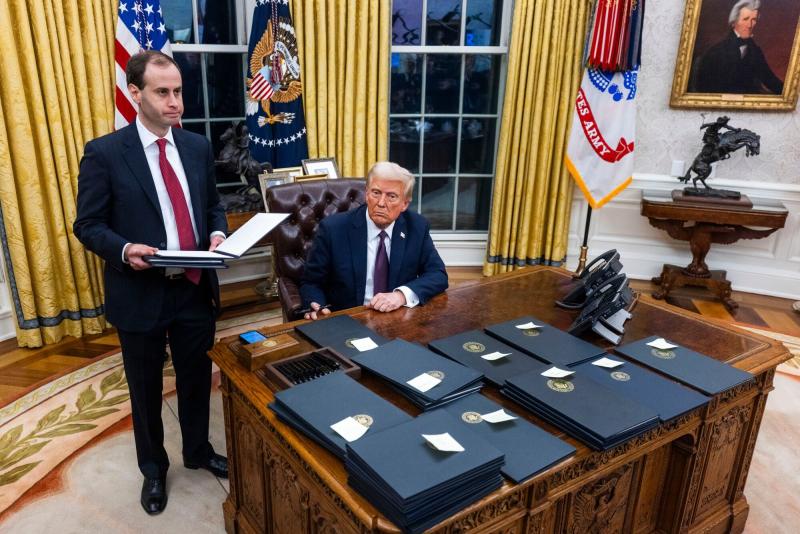The United States has announced a suspension of its foreign aid, sparing only Israel and Egypt, according to an official document obtained by international media. The decision, attributed to former President Donald Trump’s administration, aims to realign U.S. priorities under the “Make America Great Again” agenda. The announcement was made on a Friday through the U.S. Department of State.
Marco Rubio, a senior official in U.S. foreign affairs, issued a memo to staff, emphasizing the need to cut foreign aid to further President Trump’s vision of prioritizing America’s interests. The aid suspension, which amounts to billions of dollars annually, affects programs that support global welfare, health initiatives, and military assistance. Rubio’s memo highlighted, “No further aid will be issued without thorough assessment and justification.”
The suspension is expected to have widespread consequences, including on aid provided to Ukraine. Over the past two years, the U.S. has contributed billions of dollars to Ukraine to support its resistance against Russia’s invasion in February 2022. However, despite substantial U.S. financial backing under President Joe Biden’s administration, Ukraine has struggled to counter Russia’s advances effectively.
The U.S. decision also targets funding to the World Health Organization (WHO) and the President’s Emergency Plan for AIDS Relief (PEPFAR). These programs have been pivotal in combating diseases and epidemics worldwide. Since its inception in 2003 under George W. Bush, PEPFAR has been credited with saving over 26 million lives, particularly in Africa and Asia.
However, the suspension excludes military aid to Israel, a long-time ally, and Egypt, which has maintained strategic cooperation with the U.S. since the 1979 peace treaty with Israel. Rubio also indicated that limited food aid will continue to be provided to crisis-stricken nations such as Syria and Sudan.
The decision has faced criticism from members of the U.S. Congress, especially Democrats, who argue that such measures tarnish America’s global reputation. Diplomats warn that the move could erode trust among U.S. allies, making them question America’s reliability as a partner.
Abby Maxman, the director of Oxfam America, criticized the decision, stating, “Foreign aid accounts for less than 1% of the U.S. budget, yet it plays a critical role in addressing diseases, disaster relief, education, and poverty reduction. Cutting this aid will put millions of lives at risk.”
According to Politico, the WHO has already begun scaling back its operations due to the funding cuts. Hiring freezes, restrictions on travel, and reductions in procurement of equipment and infrastructure maintenance have been implemented. Virtual meetings are now being prioritized to save resources, with in-person meetings only allowed in exceptional cases.
Experts warn that the reduced funding for the WHO could hinder global preparedness for future pandemics, leaving nations vulnerable to new outbreaks.
In 2023, the U.S. allocated $64 billion in foreign aid for development projects. However, President Trump’s administration introduced a directive to halt this funding, with implementation scheduled within 90 days. The specifics of how this will be carried out remain unclear.
The move has raised concerns that the U.S. is retreating from its role as a global leader in humanitarian efforts. Critics argue that the decision could open the door for other global powers, such as China, to fill the vacuum left by America’s withdrawal.
As the 85-day review of foreign aid policies unfolds, the world watches closely to see how this decision will reshape America’s influence and relationships on the international stage.




















